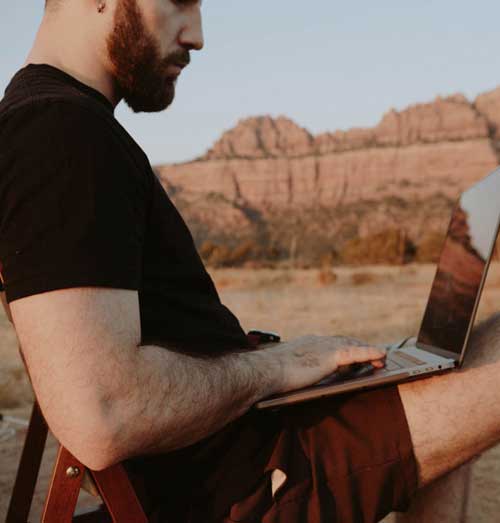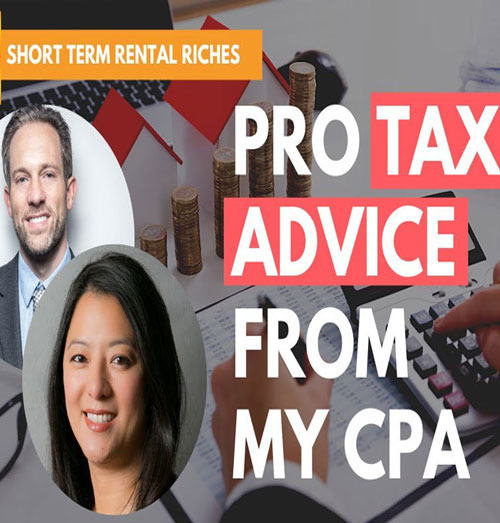Learn a successful Airbnb launch strategy to get fully booked and maximize your bookings fast!
Launching your Airbnb successfully and getting fully booked is the goal of every short-term rental (STR) host. It’s essential to have a well-thought-out strategy that ensures your property not only stands out but also secures those all-important first bookings.
In this episode, we’ll walk you through the key elements of a successful Airbnb launch, from taking advantage of the initial visibility boost to optimizing your listing with Airbnb’s new listing discount.
These strategies are designed to help you build momentum quickly, so your property stays fully booked and generates consistent revenue.
But it doesn’t stop there. To maximize your Airbnb revenue, it’s crucial to understand how to leverage seasonal pricing and diversify your booking platforms. While Airbnb might be your primary channel, expanding your presence to other platforms like VRBO and Booking.com can significantly increase your booking potential.
We’ll also discuss the importance of building a strong review base early on, which not only boosts your credibility but also drives more bookings across all platforms. With the right approach, your Airbnb launch can be a major success, setting you up for a profitable year ahead.
Key takeaways:
- Maximize Airbnb Visibility: Leverage the initial visibility boost you receive as a new Airbnb listing to secure early bookings and establish your property in the market.
- Strategic Airbnb Pricing: Utilize Airbnb’s new listing discount to attract guests while maintaining revenue by adjusting your base price. Experiment with pricing strategies to optimize visibility without sacrificing income.
- Build Reviews Quickly: Accept shorter stays initially to build up your review base on Airbnb and other platforms like VRBO. A strong review base is critical for gaining trust and boosting bookings.
- Seasonal Pricing Strategies: Align your property launch with peak seasonal demand and adjust your pricing based on booking windows to capture high-value bookings at optimal times.
- Diversify Booking Platforms: Expand your property’s presence beyond Airbnb to platforms like VRBO and Booking.com. This strategy helps you reach a broader audience, build reviews on multiple platforms, and secure more bookings.
Launching a new short-term rental property in 2024 doesn’t have to be daunting if you approach it with the right strategies. By maximizing your Airbnb visibility, implementing effective pricing strategies, and diversifying across multiple platforms, you can set your property up for long-term success.
Remember, the key is not just to get those first few bookings but to maintain a steady flow of guests and build a solid review base that will keep your calendar full all year round.
–
Take advantage of StayFi’s special offer for our listeners:
👉👉👉 Exclusive Offer Get 50% Off Your First 3 Months with StayFi 👈👈👈
–
Need help managing your short-term rental and you don’t want to go it alone? Shoot us a message here and we’ll see if we can help.
Are you enjoying the podcast? Please subscribe, leave a rating and a review, and share it! This helps us reach others that may find the info helpful as well.
You can find all of our links here including our recommended resources, short-term rental playbook, Instagram, and more!
Click here to view the transcript
Welcome back to the show. I’m happy you’re here again. Today we’re talking about how to make sure that we launch our new property with success. How do we ensure that we get bookings and how do we ensure that they continue to come in from multiple platforms? Stay tuned. Let’s jump right in. Welcome to Short-Term Rental Riches. We’ll discuss investing in real estate, but with a specific focus on short-term rentals. Quick, actionable items to acquire, manage, and scale your portfolio.
I’m your host, Tim Hubbard. Hey there, short-term rental owners. Looking to boost your revenue and keep your guests coming back? I know you are. Say hello to Stayfi, the innovative platform that lets you gather guest info and market directly to them. How does it work? Well, we’ve talked about this before. Your guests log into your Wi-Fi via a branded landing page you can easily create,
showcasing your guidebook and other commissionable activities. After your guests leave, you can use Stayfi’s email and SMS marketing tools to keep your property top of mind and secure those direct bookings. We’ve built a solid list of subscribers using Stayfi, my personal portfolio. Now we can turn one quick email or automated series into dozens of direct bookings. Use the code RICHES when you sign up for Stayfi. It’s time to start converting first-time visitors into repeat guests with Stayfi.
Well, welcome back to the show. I’m glad you’re here again. And today we’re talking about something I think is really exciting, and that is launching a new short-term rental. I know there’s a lot of doom and gloom out there right now, a lot of people talking about Airbnb busts, but the reality is, is that a lot of you are still launching new properties, you’re starting new short-term rentals, and you are having a lot of success with it. Of course, this depends on the market, right? But there’s things that we can do to ensure that success, and that’s what we’re going to talk about today.
First things first, when we start with a new property, it does get a visibility boost, you could say. And so we’re launching new properties all the time, and from what we see, from the patterns that we see, you can typically expect maybe between three to five bookings really within the first few weeks because you’re getting more visibility on the platforms like Airbnb. They want you to be successful, right? If you’re not successful, you take your property off their platform, and then no one makes any money.
So we see that to be the case generally between three to five bookings, although there are a few things that might prohibit you from getting those bookings, and we’ll jump into those in just a second. Another feature that we have available to us on Airbnb is to offer a new listing discount. So this is 20%, and it goes for your first three reservations. The upside to this is that you get more visibility,
again, remember this is just on Airbnb. We’re going to talk about the strategy for other OTAs here in a second. So if you decide to apply this discount, it is optional, and you don’t always need to apply it, but it does give you more visibility. You may even want to consider raising your prices on Airbnb, and then offering the 20% discount over the top. That way you’re not missing out on a lot of revenue, but you’re still getting some extra visibility. One other thing we want to take into consideration when we’re launching a new property,
when we’re just listing it for the first time, is what sort of reservation length we are accepting. So let’s say you launch your property, it’s a brand new one, and you get a three month stay. Well, then that means for the next three months, you’re going to have no reviews coming in, which means you have zero reviews during that whole time. You don’t have the ability to rent it on other platforms. You can’t get reviews on other platforms. And essentially this could delay your success with your property quite a bit.
So one thing you might want to consider is accepting shorter stays, even down to one night, so that you can have more guests coming in, you can earn more reviews faster, and you can build that base up. So a couple of quick things there. You have the option to allow the 20% discount with Airbnb. You get a extra boost on all of the platforms when you first launch a property, but many times your properties are just getting booked on Airbnb, maybe because that’s where you started.
And so we’ve got to take that into consideration. We’re going to talk about other channels here in just a second, but the next thing I want to dive into is when you’re actually launching your property or when you’re listing your property for rent for the first time. So let’s imagine that you are in a summer vacation rental destination, and you go to start your property to make it live in the winter. Well, obviously you’re past the peak season, right? So there’s going to be less demand and you will need to factor that into your pricing and you need to be even more aggressive because you have no reviews.
So if you see that the average nightly rate in your market in the low season is $500 a night, but you have zero reviews, well, people are going to have less confidence to book your property, right? So if you’re not getting booked, you need to monitor your prices very closely and very often in the beginning to make sure that you don’t miss out on some of that extra opportunity and that you pick up momentum, you start getting some reservations and you start building that review base.
Now let’s imagine that your property is almost ready and you’re getting ready to launch it and it happens to be peak season. This would be ideal, but if you plan things out, maybe you’re doing a renovation and your plan is to launch your property during the peak season, it’s going to be really good for you because there’s way more demand coming in. So you’re going to get those reservations coming in quicker, but we have to keep our booking windows in mind. So let’s take the same summer vacation rental destination and say that the average booking window is 90 days.
In other words, people are making reservations there in the summer 90 days in advance. Well, if you launch your property, the day summer starts, you’re 90 days late, right? People have already been making their reservations. And so you’re going to have to discount your price to catch up. So ideally you launch your property in the peak season within the booking window. So when people are still making those reservations, if this fits well into your timeline, well, then you’re going to ensure that you’re getting bookings faster.
You’re getting more of them and you’re going to build that review base quicker than ever. Now let’s talk a little bit about the different channels because we know that we need to list our property on multiple channels. Different channels have different demand in different markets. So Airbnb is global as we all know, but there are some markets where VRBO traditionally outperforms Airbnb. There are some markets or types of properties where booking.com or Expedia are going to work better.
Maybe small boutique hotels or urban properties or properties competing with hotels, for example. And so we need to build our review bases on these other channels as well, because if someone goes to book your property and there’s zero reviews there, again, they don’t have a lot of confidence to reserve your property from what we see. It generally takes three to five reviews and good reviews for someone to not have that concern and just to go ahead and reserve your property.
So one of the things that a lot of you run into trouble with is getting all of your bookings on one channel. Usually that channel is Airbnb. And so what does this look like? You launch your property, you’re getting lots of reservations, are rolling in on Airbnb, but what happens on the other side of that? You’re not leaving your calendar open for VRBO or for booking.com. And so you’re building a lot of momentum with Airbnb, which is fantastic. You’ve got money rolling in, but you’re making it harder and harder for you to pick up that momentum on other channels.
So one thing you might consider doing, and again, this is just a suggestion, but maybe in the beginning, after you’ve picked up a few reviews, let’s say from Airbnb and nothing has come in from VRBO, consider raising your prices on Airbnb, but just Airbnb and leaving your normal prices on VRBO to leave some of those dates open, maybe a little bit longer and to try to get some bookings coming in. Remember, you need to account for the difference in commission you’re paying on these websites.
So for us, we pay 3% at Airbnb. This can differ depending on your settings. We pay 5% with VRBO. And so we charge more on VRBO. And in fact, for us and a lot of the markets where we operate and own properties, we earn more per reservation with VRBO because those reservations are often booked further in advance than they are with Airbnb. And if someone’s booking our properties further in advance, depends on the booking windows,
they’re usually going to be charged more. So consider that as a strategy. If you’ve got no reservations coming out on your other channels, just remember, if all of your popular dates are already reserved on Airbnb, then there’s no chance for someone to book on these other platforms. And now once you have that three to five review base on each of these channels, you have enough for someone scrolling through the listings to feel confident booking your property. And so if you prefer to get reservations through Airbnb, then by all means make your pricing a little more competitive there.
But the idea here is that we have a good base on all of these platforms so that we can spread our risk, so we can fill up our calendar a little bit more. And so we really, we just have more options. If you’ve been listening to the podcast for a while, then you know that I’ve been managing my properties virtually for years and years. My team and I have managed thousands of guests. We’ve learned a ton and I’m really happy with the progress and the growth we’ve made. In fact, we’re now big enough to help manage your properties as well.
Our team has a ton of experience from the inner city apartment to the large lakeside retreat. We’ve worked with all types of properties across the nation. We’ll help to take the management workload off your plate while earning top revenue and excellent guest reviews, all while charging an industry low fee. If you’d like to find out if your property fits with our program, just head to strriches.com. There you’ll see a property management button. Again, that’s strriches.com. Just click on the property management button and we look forward to chatting with you soon.
Okay, so just to recap real quickly, we talked about some of the benefits from launching a brand new property. We get more visibility. We have special options available to us like Airbnb’s 20% discount. We talked about when during the year you’re actually starting your property or making it live. That’s very important. So if it’s happening during the high season, that would be ideal. If it’s during the low season,
you need to be extra aggressive with your prices. We talked about ensuring that we get reviews on different channels and that if we’re dominated by one channel, it doesn’t leave a lot of opportunity for the other ones. The next thing I want to just chat about here briefly is that this really is a journey with your short-term rental. And so when you start your short-term rental, it’s very unlikely that you’re going to make more money in the first year than you will in the second year. Again, we’re building up this base of reviews. You’re building up a clientele, people that love your property.
And you’re building up the ability to have repeat guests, to have direct bookings where you’re going to be making more per reservation. And you’re really figuring out your revenue management strategy. Because when you start, yes, we can use these great tools like Price Labs and AirDNA and Wheelhouse. And that gives us a really good starting place. But our pricing strategy is something we have to consistently monitor and it changes all of the time. And so generally speaking, the first year we launch our property is not going to have the most net revenue.
And I say net revenue because remember these direct bookings can have a much higher profit margin than a booking through Airbnb, for example. And the other reason we really have to look at our short-term rental is more of an investment journey than just a standalone investment. Maybe like a long-term rental where we put it up for rent, rents for $2,000 a month. Then next year we do the same thing is because we have this base of reviews, we have this history and we’re learning as we receive guests and we’re learning more and more as we get more and more data coming in from our property.
The more reviews you have and the higher that review score is, generally speaking, the more reservations you will have compared to your competition. Now, I didn’t say the more money you will have compared your competition because we know you might be getting 90% occupancy and your neighbors getting 70% occupancy, but they’re getting those nights booked at a much higher rate.
So again, that goes back to your revenue management strategy. We’ve talked about that a lot on this channel. In fact, we’ve talked about pretty much everything on this channel. I can’t believe it’s been nearly five years. If you’re just joining us for the first time, well, welcome to the show. I’m glad you’re here and you’ll find all of our past episodes at strriches.com. We even have a handy dandy little bot where you can ask it questions like, what episodes do you have on boosting my SEO? Which we do have an episode on that.
It’s 130. So we’ve pretty much talked about everything. If you’re new, welcome. And if you’re an existing listener, but you haven’t yet left us a review or subscribe to our YouTube channel, I’d really, really appreciate it. If you wouldn’t mind heading over there and hitting the like button and subscribing to us on Spotify or Apple or wherever you prefer to listen and leaving us a review, it would mean a lot to me. Okay. So just to wrap things up here, there’s one last thing that I want to talk about. And again, this speaks to our STR or short-term rental journey.
And that’s that after we’ve developed some of these reviews, we have the opportunity to have these different statuses, right? We can have premier host status on VRBO. We can have super host status on Airbnb. We can be listed as a guest favorite on Airbnb, which is also very powerful to the success for your short-term rental. So there’s a lot that goes into this. And it really starts with the day we launch our property, right? And this is assuming that your property is in good shape, that you’ve stayed at your property,
that you know, all of the little things that might arise and you have excellent, excellent communication with your guests. We are in the hospitality industry. So if your guests don’t have a good stay, well, then you’re not going to have good reviews and then we know what happens.















